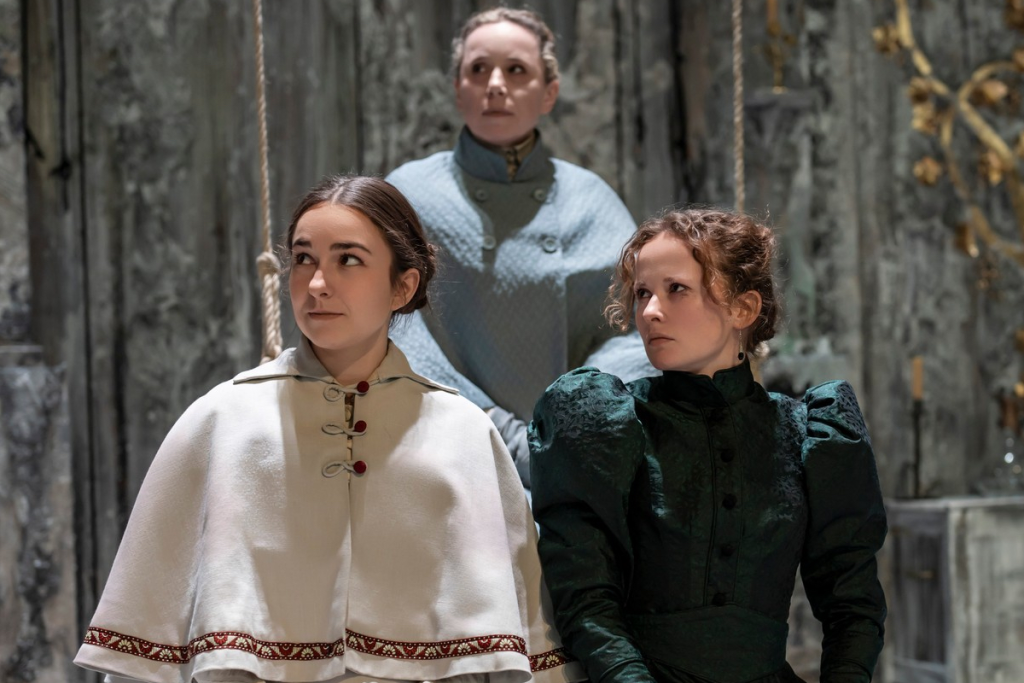
Anton Chekhov wrote The Three Sisters in 1900, just before the revolutionary turmoil and societal changes of the early 20th century. It premiered on January 31, 1901, at the Moscow Art Theatre, founded by Konstantin Stanislavsky and Vladimir Nemirovich-Danchenko.
It feels more like a novel than a play, with years passing between acts, and no clear resolution to any of the story lines. Longing for glamorous Moscow, the three frustrated Prozorov sisters—Olga, Masha, and Irina—languish in their provincial, banal home, paralysed and unable to act. Beckett’s Vladimir and Estragon transform inaction into a deliberate choice. In contrast, here futility seems to envelop both characters and audience alike, as we partake only in the mundane everyday, with all dramatic climaxes unfolding offstage and important characters, like Protopopov, never actually visible. We leave the theatre with the vaudeville tune ‘Ta-ra-ra Boom-de-ay, I’m killing time today,’ sung by Doctor Chebutykin, echoing in our ears.
It is hard for me to say how much of this is the Rory Mullarkey’s translation and how much the cynicism with which the passing decades have imbued my life, but my takeaways from this production were very different from those when I first encountered the play in high school. Back then I was enchanted by the introspective and melancholic portrayal of fading gentry. This time, I felt little empathy for any of the characters, for their struggles and their ultimate disillusionment. Frankly, save for Anfisa, the rest struck me as tiresome.
That does not mean I did not enjoy the performance – quite the opposite – it has almost made me forgive the Wanamaker for Cymbeline: the costumes were gorgeous and traditional; the clever set design with embossed gold-leaf birch trees conjoured up nuanced locations with the subtlest of changes; and the music was befitting and not overbearing.
But most notably, I came to the realisation that “toughen up buttercup” isn’t a modern quip developed specifically for Millenials and Gen Z. Clearly the pre-revolutionary Russians had it mastered. Irina’s constant comments about the nobility of work undercut by incessant whinging about its demands and her inability to cope were straight off Tik-Tok. Then there was her long tirade explaining how, by today’s standards, she is part of the A+ community. And if that was not enough, there was a pinch of Moscow-FOMO thrown into the mix.
My only two, very minor gripes were:
- Stuart Thompson inability to play an overweight character – a cushion stuffed under the belt whilst he pranced about with great energy was not very convincing. This weakness in acting was exacerbated by the portly Doctor’s gait.
- Baron Tuzenbach “ugliness” not coming through – Abubakar holds his own against Vershinin’s charm and Solyony intensity – making it somewhat hard to understand why Irina remains so disinterested.
So classic as it was – this staging resonates with an almost uncanny timeliness. If you can still get tickets – grab them.
One response to “Chekhov’s buttercup”
[…] The Three Sisters feels like a novel to me, The Seagull reads like a lyrical poem, its unspoken words and unacted […]